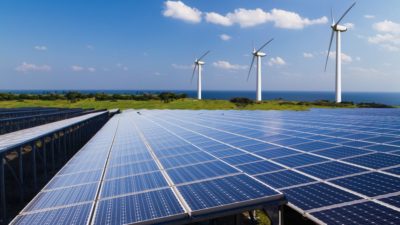Cameco Corp. (TSX:CCO)(NYSE:CCJ) is a global uranium producer. The company’s operations are primarily in Canada and the U.S.; however, Cameco has set up a subsidiary in Switzerland, where the mined uranium is ultimately sold.
Cameco is currently under investigation from both the Canada Revenue Agency (CRA) and the Internal Revenue Service (IRS) with regards to the company’s internal transfer-pricing methodology. I’ll be taking a deeper look at this very material issue for investors.
A $2.2 billion tax bill pending from the CRA
The CRA has disputed Cameco’s transfer-pricing methodology since 2008 and has issued the company a tax bill of $1.1 billion on $3.3 billion of income not reported in Canada from 2003 through 2010. Cameco has paid a portion of these taxes and taken out a letter of credit to cover the remaining amount; however, this is only the beginning of the story.
The CRA is in the process of reassessing the earnings of Cameco from 2003 through 2015–a process which the company believes will result in cumulative earnings of $7.4 billion being reassessed as taxable by the CRA, meaning a total pending tax bill for the company amounting to $2.2 billion.
The CRA asserts that Cameco essentially mined the uranium in Canada, shipped it to the company’s Swiss subsidiary Cameco Europe Limited (CEL) for a fraction of the value, marked the uranium up in Switzerland, and proceeded to sell the uranium abroad, recording all the company’s profits in Switzerland rather than in Canada due to the massive tax differential.
The fact that Cameco engages in transfer pricing (the price at which Cameco sells uranium to Cameco Europe Limited) is not uncommon; many companies have subsidiaries set up abroad to deal with global trade. What is uncommon is that CEL has only one employee, and that employee doesn’t even live in Switzerland.
We can see from the company’s financial statements that Cameco is not only recording all of its income in Switzerland, but it is actually taking a massive loss in Canada, resulting in tax losses that the company has, in the past, carried forward to reduce its tax expense in Canada.
A US$122 million tax bill pending from the IRS
The IRS has also disputed Cameco’s capital structure and transfer-pricing methodology relating to its uranium operations in the U.S. It handed the company a tax bill amounting to US$122 million for 2009 through 2012. This tax bill, of course, doesn’t include subsequent years’ production, which may be pursued in the future.
What does this mean for Cameco in the short/long term?
While Cameco has worked toward paying a portion of the current total tax bills owing, the potential reassessments coming in the near future might cripple the company. Given the current earnings of the company, the total tax bills owing approximate 30x the annual earnings of Cameco! In other words, it will take the company 30 years to pay off these tax bills should the company continue to maintain earnings at the current level over the next 30 years.
The realistic alternative to paying off tax bills over a long period of time (and incurring large interest expenses on the taxes owing) is for the company to take on debt to pay the tax man.
Either way, the company’s profitability will be in serious question moving forward, especially when the company adjusts its net earnings for its new tax rate, which will be substantially higher in the future.







